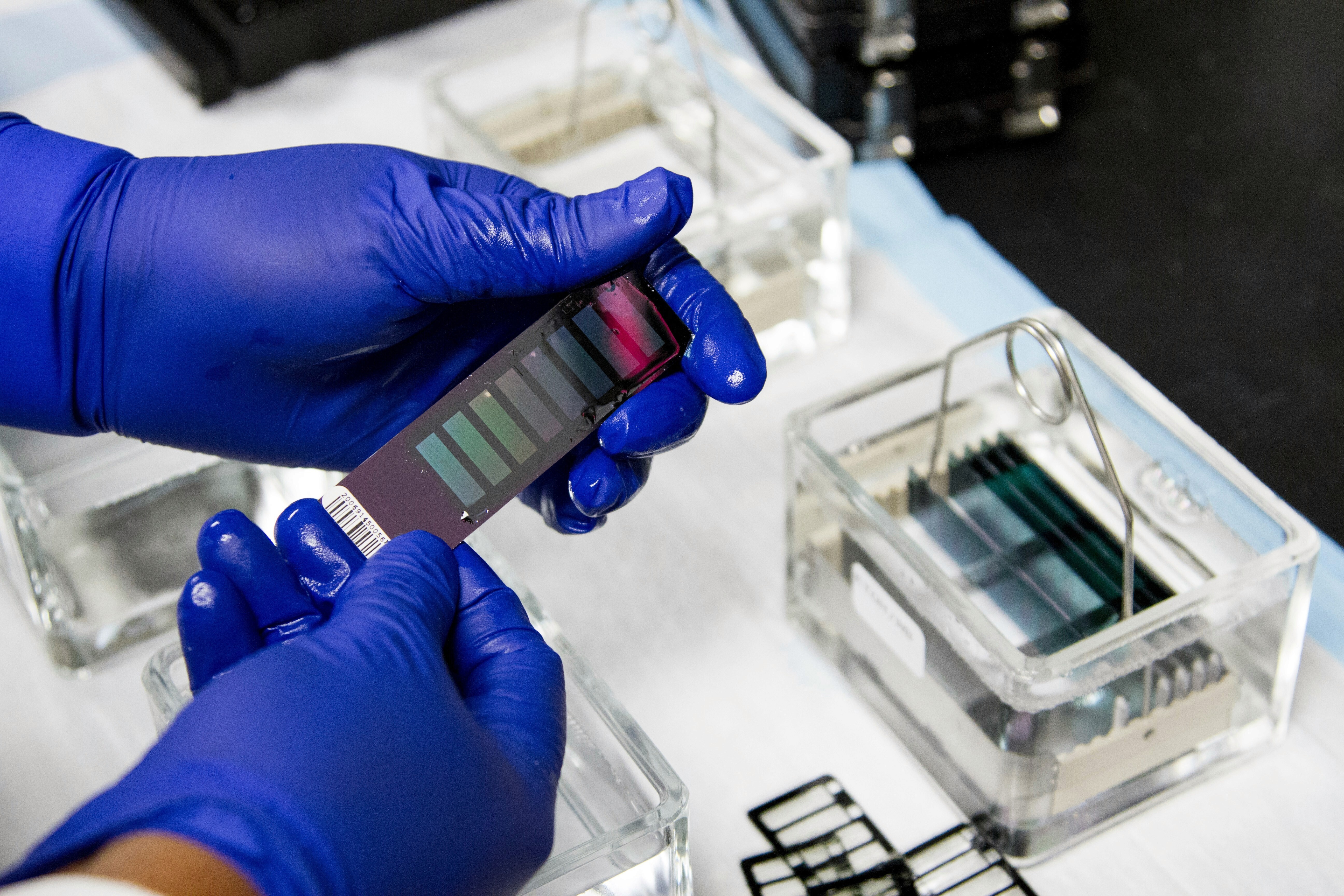Down-selection of lead candidates for desired therapeutic efficacy
Approximately 40% of drugs fail clinical trials due to insufficient therapeutic efficacy, affecting various drug types, including monoclonal antibodies, bi- and tri-specifics, immunotherapies, antibody drug conjugates (ADCs), biologics, small molecules and targeted protein degraders (TPD).

Down-selection of lead candidates for desired therapeutic efficacy
Approximately 40% of drugs fail clinical trials due to insufficient therapeutic efficacy, affecting various drug types, including monoclonal antibodies, bi- and tri-specifics, immunotherapies, antibody drug conjugates (ADCs), biologics, small molecules and targeted protein degraders (TPD).

Different drug classes require distinct kinetic binding profiles to be successful in clinical trials

Antibody-based drugs
For instance, monoclonal antibodies demand the highest binding affinities, while moderate affinities are desired for immunomodulatory drugs to avoid T-Cell exhaustion. Antibody-drug conjugates (ADCs) may need optimization for specific rates of drug dissociation or residence times on their targets.
Antibody Affinity Maturation Cycles
SPOC also enables the production of single chain antibody fragments on chip, including scFvs, VH, VHH or nanobodies. Thousands of CDR variant sequences can be produced at once on a SPOC SPR chip, to screen with target protein and generate kinetic data sets for rapid affinity maturation cycles, at a fraction of current costs. 1000s of antibody sequences identified from B-cell sequencing, or selected from phage and yeast display libraries, can be produced on SPOC chip to facilitate section of leads with most optimal kinetic binding parameters and sequence diversity. This also speeds up testing of AI driven CDR sequence design and optimization.
Different drug classes require distinct kinetic binding profiles to be successful in clinical trials

Antibody-based drugs
For instance, monoclonal antibodies demand the highest binding affinities, while moderate affinities are desired for immunomodulatory drugs to avoid T-Cell exhaustion. Antibody-drug conjugates (ADCs) may need optimization for specific rates of drug dissociation or residence times on their targets.
Antibody Affinity Maturation Cycles
SPOC also enables the production of single chain antibody fragments on chip, including scFvs, VH, VHH or nanobodies. Thousands of CDR variant sequences can be produced at once on a SPOC SPR chip, to screen with target protein and generate kinetic data sets for rapid affinity maturation cycles, at a fraction of current costs. 1000s of antibody sequences identified from B-cell sequencing, or selected from phage and yeast display libraries, can be produced on SPOC chip to facilitate section of leads with most optimal kinetic binding parameters and sequence diversity. This also speeds up testing of AI driven CDR sequence design and optimization.
Screening drugs with library of target mutations or variants
In diseases such as infectious diseases and cancers, the protein targets that drugs are designed to bind to often develop mutations due to selection pressures. These mutations can lead to drug resistance or escape, as the mutated proteins may have reduced binding affinity for the existing drugs.
The SPOC platform enables comprehensive screening of new drug candidates against hundreds to thousands of potential resistance-causing or escape mutations. This approach facilitates the identification of drug candidates that can effectively bind to a broad range of protein variants with the desired affinities.
In the context of cancer, the platform's kinetic screening capabilities allow for the selection of drug molecules that strongly bind to disease associated target mutations present in cancer cells, but not to unmutated proteins or their isoforms found in healthy cells.
Screening drugs with library of target mutations or variants
In diseases such as infectious diseases and cancers, the protein targets that drugs are designed to bind to often develop mutations due to selection pressures. These mutations can lead to drug resistance or escape, as the mutated proteins may have reduced binding affinity for the existing drugs.
The SPOC platform enables comprehensive screening of new drug candidates against hundreds to thousands of potential resistance-causing or escape mutations. This approach facilitates the identification of drug candidates that can effectively bind to a broad range of protein variants with the desired affinities.
In the context of cancer, the platform's kinetic screening capabilities allow for the selection of drug molecules that strongly bind to disease associated target mutations present in cancer cells, but not to unmutated proteins or their isoforms found in healthy cells.

Detecting off-target binders that may lead to toxicity
Approximately 30% of drugs fail due to toxicity caused by off-target binding or unintended on-target inhibition. Drug molecules designed to bind specifically to disease-related protein targets often also interact with other proteins vital to healthy cell function, leading to toxicity and clinical trial failures. Identifying and eliminating off-target binders early in the drug development process is crucial for improving success rates.
The SPOC platform enables comprehensive screening of lead molecules against thousands of protein targets to detect potential off-target interactions. With a database of over 10,000 human proteins available for off-target screening, SPOC plans to expand to whole proteome-scale screening, enhancing its ability to identify off-target binders more effectively.
Additionally, fluorescence-based (or other end-point) screening methods often miss off-target binders with fast dissociation rates, as these binders unbind during wash cycles and evade detection. The SPOC platform's real-time biosensing allows for the detection of even rapidly dissociating off-target binders, thereby improving the safety profiles of lead molecules selected for further development.
Screening drugs with library of target mutations or variants
Purpose-designed proteins represent the next frontier in biotechnology, whether inspired by natural proteins or designed entirely from scratch. Imagine novel proteins or enzymes engineered to more effectively capture carbon for climate change mitigation, accelerate the breakdown of plastics for faster biodegradation, catalyze the low-energy splitting of water to produce hydrogen for fuel cells, or synthesize key ingredients on demand for various industries, such as cosmetics. Innovators around the world are pioneering these exciting new approaches.
However, novel proteins produced through synthetic biology often face challenges such as poor expression or toxicity in cell-based systems. The SPOC platform addresses these issues with its cell-free production method, enabling the production and screening of virtually any novel protein design, a library of protein designs tested at once. It also supports downstream kinetic affinity screening with binding partners to quickly assess functionality. In the future, we plan to incorporate protein activity testing assays on the SPOC platform to further expand its capabilities.
For more information on the SPOC platform, get in touch:
Contact Us
1600 Adams Drive
Suite 236
Menlo Park, CA 94025
7201 E Henkel Way
Suite 285
Scottsdale, AZ 85255
480-219-9506
For more information on the SPOC platform, get in touch:
Contact Us
1600 Adams Drive
Suite 236
Menlo Park, CA 94025
7201 E Henkel Way
Suite 285
Scottsdale, AZ 85255
480-219-9506
Privacy & Conditions
All rights reserved © 2024

